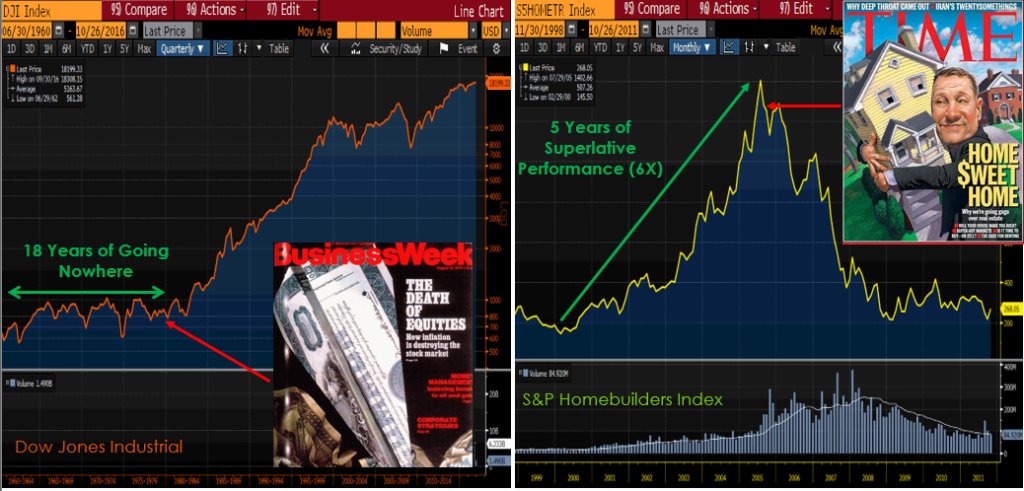Behavioural Biases In Investing
Recency Illusion
06 November 2016

How many of us can really remember something which happened 10 or 15 years ago? Perhaps we could, if it was a life changing event, but even then the details would be hazy. Our mind remembers the general context and the broad picture, but the colour of the shoes you were wearing or when it started to rain would be lost in time.
The Recency Illusion is a term invented by Arnold Zwicky, a Stanford linguist who was interested in examples involving words, meanings, phrases and grammatical construction. However, the term is not restricted only to linguistics; Zwicky defined it as “the belief that things you have noticed only recently are in fact recent”.
Unfortunately, in the realm of our mind, this is true. Recent events and the current informational context have the most weight in determining how we interpret things. This is particularly troubling when applied to investing. How many times have you heard someone say, “I am going to buy this house or this stock because it won’t lose money. I don’t know anyone who didn’t get rich doing this!”
The recency illusion also affects those who write the articles which we devour daily and base our decisions on. Here are some famous examples that generally went pear-shaped for anyone who followed the headlines:

First, we have the infamous Business Week cover heralding the death of equities – which, after a 18 year consolidation period, preceded one of the best equity bull markets. It is likely that investors whom the journalists spoke to had grown weary of holding stocks, as they provided close to no returns.
The Time magazine cover on the housing bubble in the US likewise preceded one of the biggest housing busts, which led to the 2008 Great Financial Crisis.
#
If you have found this article useful and would like to schedule a complimentary session with one of our advisers, you can click the button below or email us at customercare@gyc.com.sg.
IMPORTANT NOTES: All rights reserved. The above article or post is strictly for information purposes and should not be construed as an offer or solicitation to deal in any product offered by GYC Financial Advisory. The above information or any portion thereof should not be reproduced, published, or used in any manner without the prior written consent of GYC. You may forward or share the link to the article or post to other persons using the share buttons above. Any projections, simulations or other forward-looking statements regarding future events or performance of the financial markets are not necessarily indicative of, and may differ from, actual events or results. Neither is past performance necessarily indicative of future performance. All forms of trading and investments carry risks, including losing your investment capital. You may wish to seek advice from a financial adviser before making a commitment to invest in any investment product. In the event you choose not to seek advice from a financial adviser, you should consider whether the investment product is suitable for you. Accordingly, neither GYC nor any of our directors, employees or Representatives can accept any liability whatsoever for any loss, whether direct or indirect, or consequential loss, that may arise from the use of information or opinions provided.









